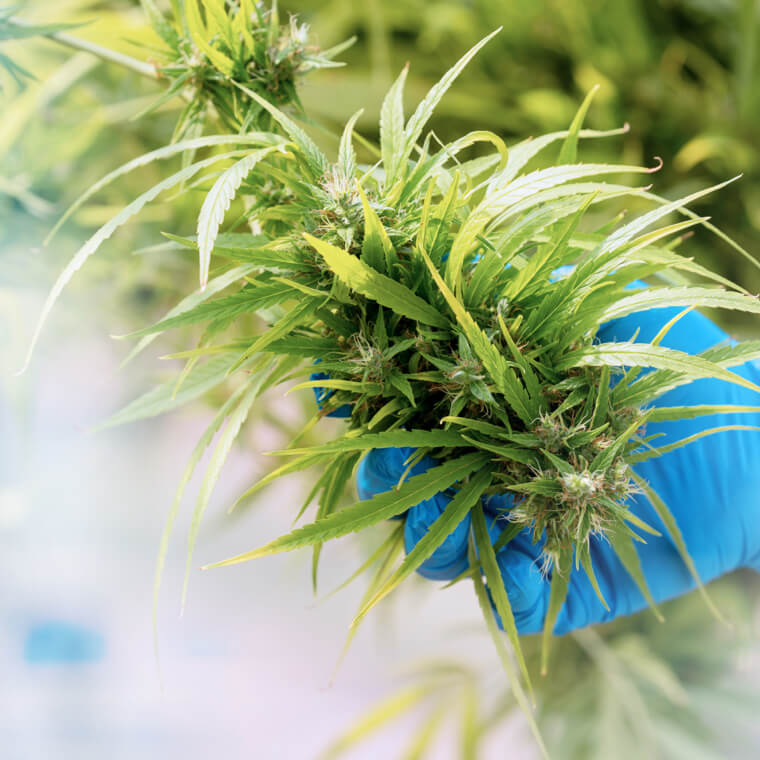Ensuring Potency and Safety

The cannabis industry has experienced rapid growth and change in recent years. As more states legalize medical and recreational cannabis use, strict regulations and testing requirements have been implemented to ensure the safety and consistency of these products. In Colorado, one of the first states to legalize recreational cannabis, the industry is highly regulated, and lab testing is required to assess the potency of products and screen for contaminants. This article will explore the analytical lab testing requirements for cannabis labs in Colorado, focusing on potency and contaminants testing. We will discuss the standards and methods employed, as well as the importance of these tests for consumer safety and product quality.
Potency Testing
Potency testing is essential to determine the levels of cannabinoids present in a cannabis product. These compounds are responsible for the therapeutic and psychoactive effects of the plant, and their concentrations can vary significantly between different strains and products. The two primary cannabinoids that are measured for potency are THC (tetrahydrocannabinol) and CBD (cannabidiol).
Regulatory Requirements
The Colorado Department of Revenue’s Marijuana Enforcement Division (MED) enforces rules and regulations regarding the potency testing of cannabis products. According to the Colorado Code of Regulations (CCR) 1 CCR 212-3, M 1500 series, all retail marijuana products, including flower, concentrates, and infused products, must undergo mandatory potency testing at a state-licensed testing facility (1)
- Testing Methods
High-performance liquid chromatography (HPLC) is the most common method for cannabinoid potency testing, as it allows for accurate quantification of the compounds in various cannabis matrices (2). The HPLC technique separates the individual cannabinoids and measures their concentrations. The results are then compared to reference standards to determine the potency of the product. - Contaminants Testing
To protect public health and ensure the safety of cannabis products, Colorado has established strict regulations for testing contaminants in marijuana products. The primary contaminants of concern include pesticides, residual solvents, heavy metals, and microbial contaminants.
Contaminants Testing

To protect public health and ensure the safety of cannabis products, Colorado has established strict regulations for testing contaminants in marijuana products. The primary contaminants of concern include pesticides, residual solvents, heavy metals, and microbial contaminants.
- Pesticides
Pesticides are used to protect plants from pests and diseases, but they can pose a risk to human health when present in high concentrations. The MED requires that all cannabis products be tested for a list of 13 pesticides, as outlined in the CCR 1 CCR 212-3, M 1500 series (1). These pesticides are selected based on their potential for toxicity and the likelihood of use in cannabis cultivation.
The standard method for pesticide testing in cannabis products is liquid chromatography-mass spectrometry (LC-MS/MS) or gas chromatography-mass spectrometry (GC-MS/MS) (3). These techniques allow for accurately identifying and quantifying pesticide residues in various cannabis matrices. - Residual Solvents
Solvents are used in the extraction process to separate cannabinoids and other desired compounds from the plant material. However, residual solvents can be harmful if ingested or inhaled. The MED mandates testing for nine residual solvents, as outlined in the CCR 1 CCR 212-3, M 1500 series (1).
Gas chromatography (GC) with a flame ionization detector (FID) or mass spectrometry (MS) is the most common method for residual solvent testing (4). This technique can accurately identify and quantify the solvents in various cannabis matrices. - Heavy Metals
Heavy metals can accumulate in cannabis plants from contaminated soil, water, or air. Long-term exposure to heavy metals can lead to various health problems. The MED requires testing for four heavy metals: arsenic, cadmium, lead, and mercury, as outlined in the CCR 1 CCR 212-3, M 1500 series (1). These heavy metals are selected based on their potential for toxicity and prevalence in the environment.
Inductively coupled plasma mass spectrometry (ICP-MS) is the standard method for heavy metal testing in cannabis products (5). This technique is highly sensitive and can accurately detect and quantify trace amounts of heavy metals in various cannabis matrices. - Microbial Contaminants
Microbial contaminants, such as bacteria and fungi, can pose a risk to public health, particularly for immunocompromised individuals. The MED requires testing for specific microbial contaminants, including total yeast and mold count, total aerobic bacteria count, Salmonella spp., and E. coli, as outlined in the CCR 1 CCR 212-3, M 1500 series (1).
Various methods are used for microbial testing, including traditional culture-based techniques and rapid molecular methods, such as quantitative polymerase chain reaction (qPCR) (6). The choice of method depends on the specific contaminant being tested and the requirements of the testing lab.
Quality Control and Proficiency Testing
To ensure the accuracy and reliability of cannabis testing results, Colorado requires that licensed testing facilities participate in proficiency testing programs. These programs involve the analysis of blind samples containing known concentrations of target analytes. The results are then compared to the known values to assess the accuracy and precision of the laboratory’s testing methods.
The MED mandates participation in proficiency testing programs for all target analytes, including potency and contaminants, as outlined in the CCR 1 CCR 212-3, M 1500 series (1). Proficiency testing helps to ensure that cannabis testing labs maintain a high level of quality control and produce reliable results.
The analytical lab testing requirements for cannabis labs in Colorado are designed to protect public health and ensure the safety and consistency of cannabis products. By mandating testing for potency and contaminants, including pesticides, residual solvents, heavy metals, and microbial contaminants, the state ensures that consumers have access to products that meet strict quality standards. As the cannabis industry continues to grow and evolve, maintaining rigorous testing standards will protect public health and foster consumer trust. By understanding and adhering to Colorado’s analytical lab testing requirements, cannabis labs play a critical role in supporting the safe and responsible use of cannabis products.
